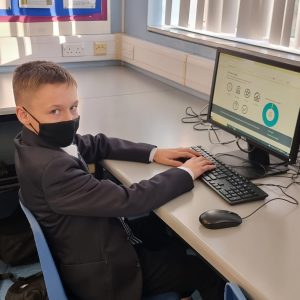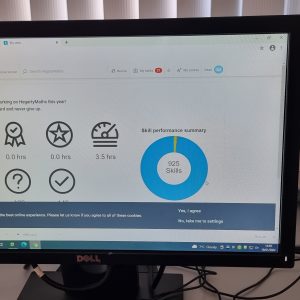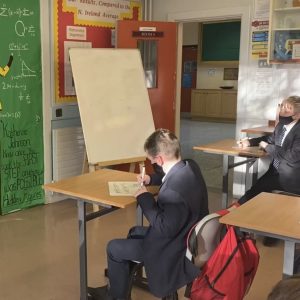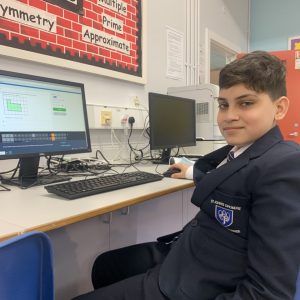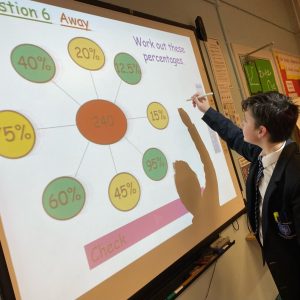Ms K McLaughlin (HOD)
Ms C Doherty (Principal)
Mr A Logue
Miss N. Kelly
Mathematics is a subject that opens doors and provides opportunities: doors to employment and further/higher educational courses and opportunities to learn about the relevance of mathematics to everyday life.
Mathematics is all around us. It exists in the proportions of artistic works, in the scores of our favourite songs and in the physical structures we live and work in daily. It is also the bedrock of many other subjects including the Sciences, Economics and Engineering .
The study of mathematics can develop a host of skills that are essential to students continuing in their studies as well as those currently in or entering the workplace. These include problem-solving, logic and reasoning, and attention to detail. Mathematics can also lead to careers in finance, business, IT and teaching, among others.
Pupils will be assessed at the end of each topic taught with formal exams at November, January and June.
The Mathematics Department @ St John’s College encourages all of our pupils to see how the knowledge and skills they acquire in their Mathematics lessons can be used in all other subjects. We have developed and will continue to develop strong links with other subjects and have explored common approaches to teaching numeracy concepts across the school.
We also emphasise the importance of Mathematics in everyday life and give the pupils opportunities to explore how Maths is used in a wide range of careers. We have a strong focus on financial capability within the department and through puzzles, games etc we provide opportunities for our pupils to appreciate that Maths can be fun.
A high percentage of pupils probably do not think that Maths has something to offer them. However, in St John’s Mathematics Department we hope to begin the process were pupils think logically and develop problem-solving skills that will help in their future studies and careers. Pupils will also be asked to: (a) manage information (b) work with others (c) self manage and (d) be creative
Within the first week or two of entry to St John’s we will test pupils to ascertain their mathematical level and place them in a group matched to their ability. This test will be repeated to check progress. Movement between groups will normally take place after Christmas or Summer exams.
Pupils will follow the statutory requirements as outlined in the specifications for Mathematics (including Financial Capability) and will complete 3 ‘Using Maths Tasks’ in Years 8, 9 &10 as part of their assessment.
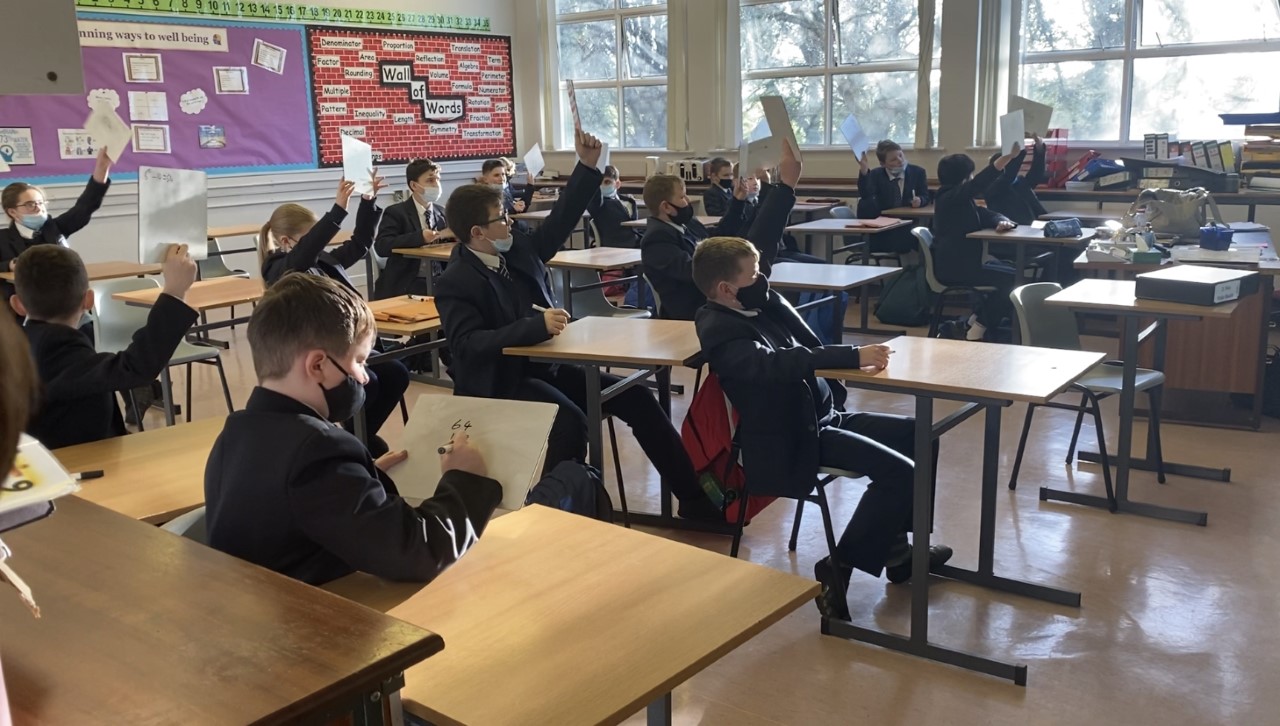
Students study GCSE Mathematics. Each student will study two modules which best suit their ability. Currently, the following combinations are used:
| Tier | Module (45%) | Completion Test (55%) | Target Grades |
|---|---|---|---|
| Higher | T4
2 hours Calculator allowed |
T6
2 Papers Paper 1 without calculator (1 hour 15 mins) Paper 2 calculator allowed (1 hour 15 mins) |
A*- A |
| Higher | T3
2 hours Calculator allowed |
T6
2 Papers Paper 1 without calculator (1 hour 15 mins) Paper 2 calculator allowed (1 hour 15 mins) |
A-B |
| Higher/ Foundation | T3
2hours Calculator allowed |
T5
2 Papers Paper 1 without calculator (1 hour) Paper 2 calculator allowed (1 hour) |
B |
| Foundation | T2
1 hour 30 mins Calculator allowed |
T5
2 Papers Paper 1 without calculator (1 hour) Paper 2 calculator allowed (1 hour) |
C
|
The content of each module relates to:
- number and algebra
- geometry and measures; and
- statistics and probability
GCSE Further Mathematics
This GCSE Further Mathematics specification replaces the old Additional Mathematics specification and retains much of the same content. To study GCSE Further Mathematics you will ideally need to be studying ordinary GCSE Mathematics modules T4 and T6.
GCSE Further Mathematics involves studying mathematics at a level beyond GCSE Higher Tier. It can act as a stepping stone that gives students a sound basis for studying GCE A-level Mathematics, introducing some of the mechanics and statistics topics that appear at AS/A2 level.
The Further Mathematics specification consists of two units, and students must study both.
Unit 1: Pure Mathematics students investigate algebra, trigonometry, differentiation, integration, logarithms, matrices and vectors.
Unit 2: Mechanics and Statistics includes exploring kinematics, vectors, forces, Newton’s Laws of Motion, friction, moments, understanding and using statistical terminology, measures of central tendency and measures of dispersion, probability, and bivariate analysis.
Through these units students will have opportunities to:
- develop their mathematical knowledge, skills and understanding;
- select and apply mathematical techniques and methods in mathematical, everyday and real-world situations;
- reason mathematically, interpret and communicate mathematical information, make deductions and inferences, and draw conclusions; and
- design and develop mathematical models that allow them to use problem solving strategies and apply a broader range of mathematics to a variety of situations.
Each of the two GCSE Further Mathematics units is assessed through a two-hour written examination paper. CCEA set and mark both papers, and each is worth 50 percent of the final mark.
The examination paper for each unit has a single question-and-answer booklet that includes a formula sheet.
There is no coursework associated with GCSE Further Mathematics.
More details on the individual modules, their respective topics and related guidance notes are available in the full specification on the CCEA website
Essential Skills – Application of Number
Why should I do this qualification?
Every year some pupils are entered into Essential Skills as an alternative qualification if they are not able to access the GCSE course. The benefits of this for the pupils include:
- They will gain a national qualification.
- It allows students to learn at their own pace.
- They can learn in a group or on their own.
- Pupils will be given help to plan and present their work.
- The tasks are learner-friendly and relevant to real life.
- There’s lots of support available.
- It’s never too late to learn!
This course can be completed at Level 1 or Level 2.
Useful Links
http://ccea.org.uk/mathematics/
http://www.kangaroomaths.com/index.php
http://resources.woodlands-junior.kent.sch.uk/maths/
http://www.bbc.co.uk/schools/mathsfile/

